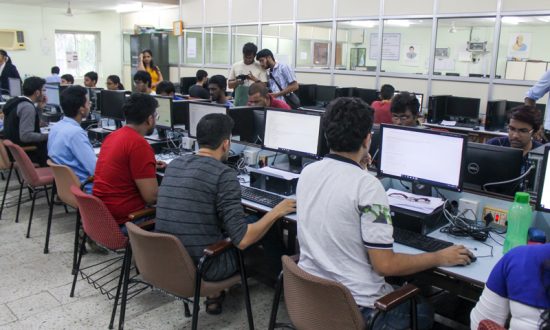Recent history has made exponential leaps, and what was recently postmodern appears now to be ancient, and the digital advances, to tackle problems in any scientific field, are so quick and broad that they make institutions, like Xavier Institute of Engineering (XIE), nervous about the future. The resultant uneasiness is accompanied by demographic, cultural, economic, and political changes, too many to mention; the world no longer seen as a spread of continents but as a global village. But, though XIE finds it difficult to keep up with the developments, it is very confident about the future, for it is well moored in the past. It is embedded in the Jesuit traditions that sprang up in the early 16th century, and towards the end of it they were already known as the “School Masters of Europe.” They founded elitist schools and universities in European capitals and major cities, like the College Louis-Le-Grand in Paris which counted among its students: Moliere, Voltaire, Marquis de Sade, Robespierre, Diderot, Baudelaire and Victor Hugo.
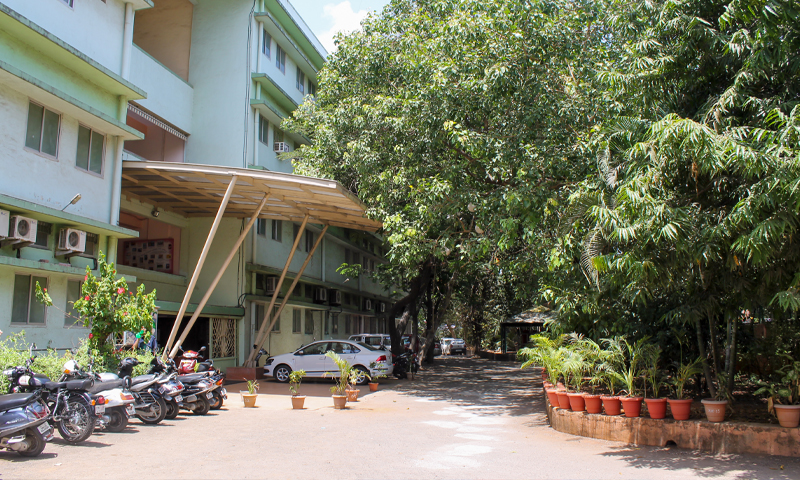
The Jesuits in India, till very recently, just like other non-Governmental educationists, were limited to schools and University Colleges of Arts and Sciences, due to the stranglehold of the Government on higher educations. In other countries the Jesuits in their universities catered to almost all academic subjects, with degrees ranging from baccalaureates to doctorates, and these from astrophysics to seismology. As elsewhere, the Indian Jesuits were quick to discern the times, and make opportunities to benefit the people, mainly because trade, manufacture, and money supply had much improved in the country. Their motto, AMDG (Latin acronym: “for the greater glory of God”) challenged them to enter new fields of higher education, and they could do that with confidence after the Manmohan Singh year. Greater freedom in management and better financial practices allowed for better security, better quality in the Arts and Science programmes, and even a plunge into Engineering.
XIE: The Sprouting of the Seed
What we have to appreciate is the multiplicity of factors that have driven institutions like XIE to stride over from the Industrial Age to the Information Age in which, as before, the basic skills and knowledge are in language, mathematics, physical and social sciences, but now must also include Electronics and Computer engineering. In these times nearly all business is conducted in terms scarcely understood by most people: app, web, portal, podcast, virtual, cloud, Augmented and Virtual realities, IoT, AI. Indispensable, therefore, is computer literacy. How is it that in India, what was already well simmering in the mid-’70s and came to the boil in the ’90s, took so long to be felt by, for example, St Xavier’s College, Mumbai, that, later, gave birth to XIE? In 1937 XIE started off, unbelievably, as a Technical Institute for Radio and Cinema (X-Tech) on its premises. Soon after WW II, with the gradual diminishing of colonial power, and the need to facilitate trade, the Technical Institute was called upon by maritime interests to set up courses especially for radio officers. The increasing demands for them made it transfer to a larger property in Mahim, Mumbai, in the late ’60s, where it settled down nicely, only to be unsettled by the digital revolution. In all fields, not only maritime, computers and electronics could not be evaded, and the Technical Institute which, to extend itself, had to cut itself off from most of its original roots, had become what it now is, XIE. It is affiliated to Mumbai University, approved by the All India Council for Technical Education, and recognized by the Directorate of Technical Education; it grants Bachelor Degrees in Electronics & Telecommunications, Information Technology and Computer Engineering; and to keep itself updated it cannot but provide courses or develop skills in the specialties of Python, Block Chain Technology, Big Data Hadoop, Embedded Systems, IoE, and AI. XIE is only being gently but effectively moved by its vision or goal: to attain “the joy of excellence in the world of high technology,” and the hopes that it now has for the future are not likely to be disappointed.
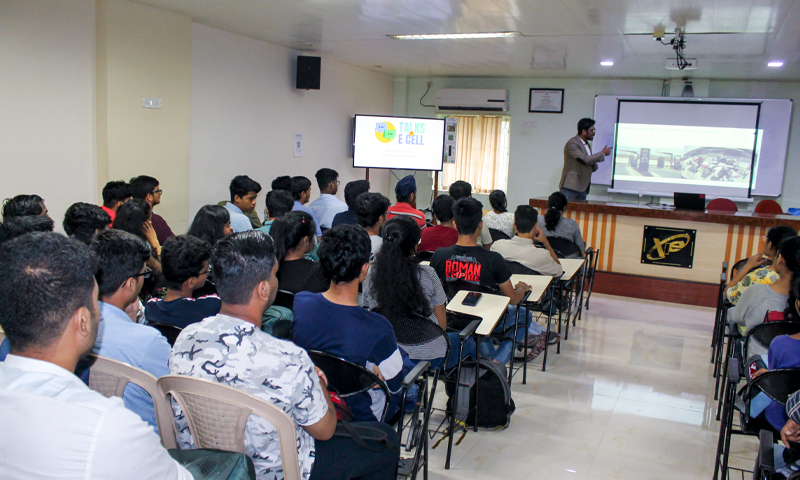
Indian Jesuits are nationalists and patriotic, but their roots are also universal, and they are much influenced by what their brethren in other parts of the world think and do. Their motto is now “Faith that does Justice,” which stresses reaching out to the poor, the marginalized, and those who live at the periphery; all of these were left out of consideration for entry into the elite professions like the medical, law, and engineering. What was unimaginable barely 15 years ago, when the stress was on education in the local language even for the rich, was the sudden clamor for education in English, not only from the moneyed class, but even from the poor villagers who saw no future for their children, unless they were competent in English and computers in order to get jobs in local factories and offices. Many naturally talented students found it very difficult to get into industrial and financial institutions for lack of higher education, and it was their need that forced the XIE authorities to cater to the needs of the economically deprived students. The poorer students of X-Tech, for instance, who had grades equal to or even better than the others, were entitled to proceed to the second year of engineering for a BE degree, but could not because of the lack of funds. It was the goading of inspiration coming from the zeal of those who founded X-Tech that motivated them to launch a regular Engineering College on the campus so that Faith could actually be practiced with Justice.
The Seed Planted Wide
The words in the maxim, “doing Faith through Justice,” when applied to conditions in Mumbai, are given body by XIE which wants the poor to be taken to a higher standard of living, and it has accomplished what was expected, and in ways that were certainly novel. XIE is involved with the University of Sanata Dharma, Indonesia, in setting up windmills with a new technology to enable coastal villages to have day-long power. XIE has collaborated with Marquette University, USA, to set up a Gait Lab in its premises for gait analysis of children affected by cerebral palsy and club foot. In collaboration with some European Jesuit institutions XIE is working on solar energy and power devices. Environmental cogency has impelled many XIE students to take up engineering projects related to solar-energy, bio-gas, wind mills, water management, drip irrigation, and soil erosion prevention. Because of these projects the students do not require to be lectured to about the environmental problems of the world.
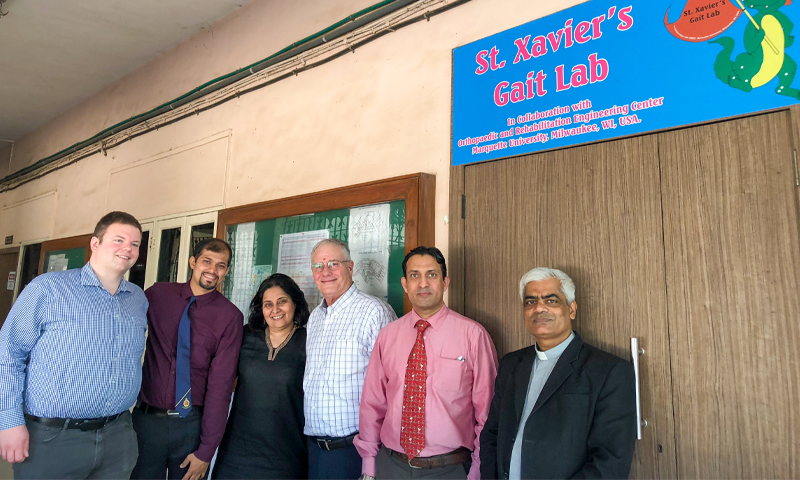
XIE is affiliated to International Association of Jesuit Engineering Schools who’s Deans or Directors meet to dialogue and exchange news of technological developments. XIE has the good fortune of having a good rapport between staff and students, and the ratio between them is 1:15. The capacious classrooms are allowed to contain no more than 65 students each, and the laboratories have state of the art equipment. It has an excellent Library, and a Centre of Excellence which also fosters entrepreneurial cells. Xavier Centre for Advanced Learning (XCAL) is grooming the future Civil Servants of our country. Xavier Centre of Excellence is to train the students in Industry 4.0 which is committed to AI, Augmented and Virtual Reality, and IoT. Outside professionals are invited to conduct special courses on the latest technologies.
XIE has 875 engineering students with three branches to choose from: Computer Engineering, Information Technology, Electronics & Telecommunications. The Management and faculty meet often to share experiences and to advance networking. There are, therefore, efforts to have common contents for orientation programmes and for regular classroom curricula. There are also Staff and student exchanges for workshops and seminars, combined training for Staff, and collaboration for students’ internship and placement programmes. There is now a special partnership fostered with the School of Engineering of the Santa Clara University in California, USA. Some have already come over from there to conduct small workshops on robotics, microcontrollers and embedded systems.
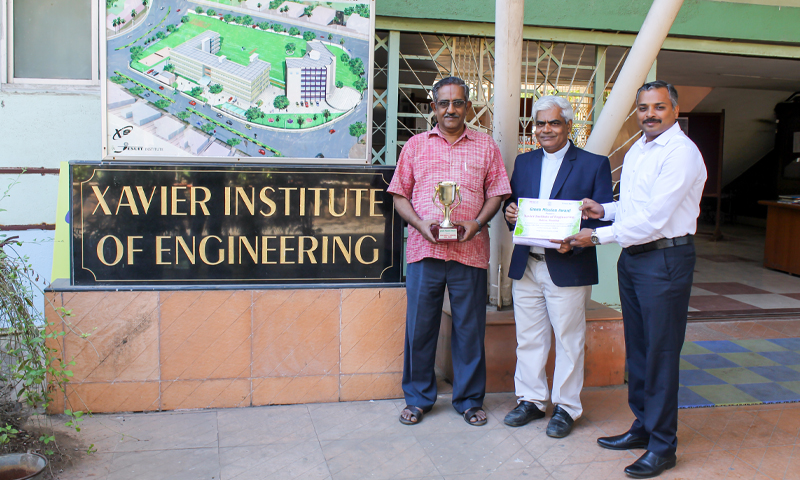
The chief goal of XIE is to provide quality education in IT, Computers, Electronics, engineering. But it would fail in its mission if it were not absorbed by students required to be wholesome beings, able to relate easily to what is transcendental or divine and to whatever is human in all its intriguing variety and complexity. “Educating the Whole Person’ is the Jesuit motto of education. From the very beginning the purpose was not only to train minds and fill them with information, but also direct them to a high idealism, sharpening minds to do away with superstitions and religious fundamentalism, and bringing to realization that the divine is attained by taking care of nature and of everything that is human. It can be said that XIE is driven by the 4 Cs: Competence, Conscience, Commitment, and Compassion. Groups of students go regularly to use or share their skills with children in rural Ashram schools. For personal development three festivals are organized every year: Transmission for technical achievements, Spandan for cultural expressions, and SparX for sporting activities, and all these are also patronized by non-XIE engineering students. Besides, XIE hosts workshops and seminars on sustainability, produces TEDx talks, has Mock UN deliberations, and also has Summer Programmes at ICAM (France) and Sophia University, Japan. It is no wonder that a beeline to recruit XIE students is made by Industries and Corporations like Reliance JIO, L&T Infotech, Capgemini, Infosys, Tata Consultancy Services, Accenture, Cognizant, Mahindra Tech, and NSEIT. And XIE alumni have set up their own companies like E-nexus, GDIZ, Oreon Web Solutions, Scintillate, Bytes, Qubelinks, and Tejas Cyber Solutions.
The Harvest
Of particular pride is that high science is brought down to serve common people in need of medical and other help. Holy Family Hospital in Bandra required XIE to equip it with the necessary software for the efficient running of their medical facilities. XIE also provided iTV goggles for the Advanced Centre for Treatment, Research, and Education in Cancer (ACTREC) in Kharghar, Navi Mumbai; with them, patients can now read their own breathing levels while undergoing radiation therapy. It also set up an FM station which uses 87.4 MHz for children’s benefit in Dharavi, Asia’s biggest slum. The crème de la crème of XIE’s attempts to be of service to people is the Gait Lab, which is a collaborative effort with Dr Gerald Harris, the Director of Orthopaedic Rehabilitation Engineering Centre, Marquette University. It was to be expected that it would be attached to a hospital or medical college but, because of the engineering involved and the meeting together of doctors, engineers, and physiotherapists, it was made to have its home on the XIE campus. An analysis is done on gait movements in children affected by cerebral palsydiplegia, hemiphlegia, neuro-muscular deficiency, osteogensisimperfecta, idiopathic in-toeing, and club foot. Analysis has already been done for over seventy children with these deformities, and it and the treatment are absolutely free for low-income families. These attempts to use high technology for those in dire need are much in keeping with XIE’s philosophy that more can be done for God only by doing more for human beings. And because of the speed of new developments, there has to be always, what Italians would call, an aggiornamento, a constant updating. XIE is the only engineering college in India to have a gait lab.
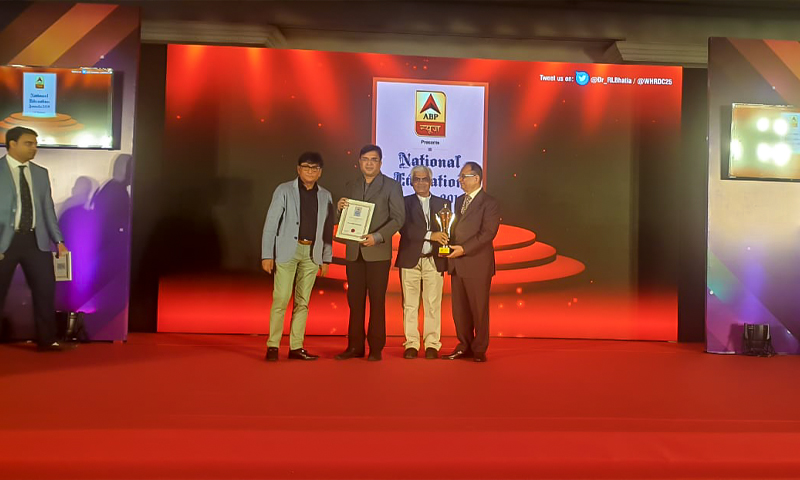
XIE promotes sustainability. The entire XIE is run on solar power and it has invited Dr. Yohanes Lukiyanto of Sanata Dharma University, to conduct a workshop on windmills. It is to be noted that XIE received Green Mission Award from ONP Solar Pvt Ltd for the two consecutive years, 2019 and 2020.
Of late, XIE and St Xavier’s College are jointly responsible for XCAL to train students holistically, not merely academically, and to foster their natural instinct for social outreach and for nation-building. XCAL has been set up to provide what is lacking. It is bound to have success, like preventing “brain-drain” from the country and making it economically sound and socially empowering. Among other things, XCAL will do research and conduct seminars on Software Ethics, Blockchain Technology and Data Analytics. To make the students street smart, quick and sure in decision making, XCAL will also use a “brain-gym” that does brain exercises through puzzles and quizzes and solving problems of mathematics, logic, and plain human life.
It does not matter if time is linear or circular for, as in the past, XIE has comfortably moved along in either, for its tradition is founded on rock, and its future is guided by the spirit that moved its original founders, one that finds the divine in all things, and lives and labours for the common good.




